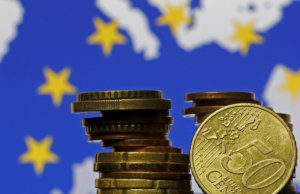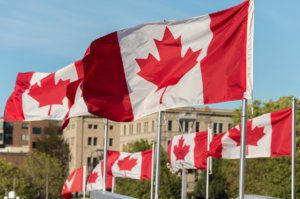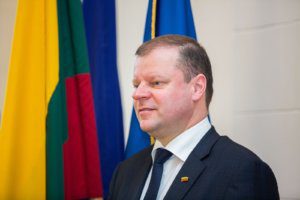
The new Ukrainian authorities are planning to reform certain elements of the governance system, including the Security Service, Ukrainian National Security and Defense Council Secretary Oleksandr Danyliuk said. “We have a security sector reform on our agenda. Without reforming the Security Service, any other reforms make absolutely no sense, because the Security Service has been historically integrated into multiple processes,” Danyliuk said in a televised interview.
“The Security Service should become a powerful organization, but in one key field; namely, counterintelligence. The Security Service should be deprived of other functions it has, including economic matters and efforts against corruption,” he said.
“Our international partners and the president actively support all of this,” Danyliuk said.
“A lot will have to be changed to make these reforms a reality; in particular, legislative amendments will have to be made,” he said.
“I have set up a group to work on [bills], and we are moving ahead very quickly. I know that we already have a bill, but, for some reason, our partners, such as, for example, NATO, do not approve of it. And our experts don’t support it for some reason, either. Why? Because this legislation would leave the Security Service’s work unchanged. We don’t need such bills. I am convinced that the Security Service and our Ukrainian and Western partners should be engaged in drawing up bills. This is exactly what is happening now,” Danyliuk said.

The accession of the Ukrainian market to the network of the Clearstream international depositary is a very important step for the infrastructure, ensuring long-term prospects for the capital market in Ukraine, and the National Bank (NBU) intends to further actively develop the market infrastructure, as it considers it to be its area of responsibility, Deputy Governor of the NBU Oleg Churiy has stated.
“[Joining Clearstream] is the most important reform in the capital market over the past five years. It will provide an opportunity to more actively attract funds from non-residents,” he told the Interfax-Ukraine news agency on the sidelines of the Sweden-Ukraine Business Forum held in Kyiv.
Commenting on the opinion that such a simplification of entry/exit of non-residents to the Ukrainian market threatens with the outflow of their funds, Churiy noted that “only one-third of the short-term money of non-residents [are invested in government domestic loan bonds] maturing this year, while two-thirds [are invested in those maturing] next year.”
The banker added that often non-residents invest these funds in new government bonds, therefore this does not mean that they will leave immediately after the bonds are redeemed.
At the same time, Churiy stressed it is necessary to do a lot more for the development of Ukraine’s capital market, and the National Bank intends to actively participate in this process.
CAPITAL MARKET, CLEARSTREAM, INTERNATIONAL DEPOSITARY, REFORM, UKRAINE'S

Minister of the Cabinet of Ministers Oleksandr Saenko expects that the next tranche from the European Union (EU) in the amount of EUR 10-20 million for governance reform could arrive in April or May 2019. “We had a very good political dialog with our European partners. They already have an official position regarding readiness to continue supporting this reform. We expect the next tranche in April-May,” he said in an interview with Interfax-Ukraine.
According to Saenko, the amount of the tranche will depend on the criteria, but according to forecasts, next year Ukraine will receive about EUR 10-20 million for this reform.
“Next year, much will change in the remuneration of civil servants. The remuneration of new reform specialists is a prototype of the remuneration model of civil servants, where the fixed part is at least 70%. This model is laid down in the law on public service. For specialists on reform issues, these parameters have already been established. We have limited the bonuses to 30%. This makes it impossible to establish sky-high bonuses,” the minister added.
Saenko said that now there is still a big imbalance in the system itself, when the position salary is minimal, and total wages and salaries increase significantly due to allowances and bonuses. This, according to the minister, creates dependence on the political biased will of the chief with all the attendant consequences.
“The new system will be more transparent and balanced, and we will gradually transfer the financing of the reform at the expense of the main programs of the ministries’ central offices,” Saenko said.

Canadian Foreign Minister Chrystia Freeland has announced the holding of the third international Ukraine Reform Conference in Canada in 2019. Canada is pleased to host the next conference, she noted at the second international Ukraine Reform Conference in Copenhagen (Denmark).
We are passing the baton to Canada, Danish Minister of Foreign Affairs Anders Samuelsen said.

The Ukrainian Cabinet’s Secretariat and the Center on Democracy, Development, and the Rule of Law (CDDLR) at Stanford University have signed a memorandum of cooperation in reform of public administration in Ukraine. The memorandum was also signed by the Professional Government Association (PGA) and Kyiv School of Economics (KSE), an Interfax-Ukraine correspondent has reported. Ukrainian Prime Minister Volodymyr Groysman and Professor of the Center on Democracy, Development and Rule of Law at Stanford University Francis Fukuyama attended the signing ceremony.
The document was signed during a meeting with the state secretaries of ministries and civil servants who were appointed to new positions in ministries within the framework of the state administration reform.
“This initiative, I hope, will become very close cooperation between my institution and the Ukrainian government. I hope that this cooperation will help Ukraine to move in the right direction in providing public services and public administration,” Fukuyama said.
Groysman, in turn, noted that society is not yet fully aware what civil service reform is.
“It is very important that we began to change not only the system of public service, but we began to change the system of governance of the country,” he stressed. He noted that in order for the public to feel improvements in the civil service, it is necessary to hire personnel who can make high-quality decisions and provide high-quality services. Under the memorandum, the parties agreed to implement the Civil Service Feedback Cycle project, which provides for a basic survey of public service in Ukraine in the format of interviewing various categories of officials on several key parameters and developing recommendations for improving the performance of state employees.

Prime Minister of Lithuania Saulius Skvernelis believes that Ukraine needs a high speed in carrying out reforms. He noted that old Europe, the old democracy “had decades to make changes in its countries.” And the new states, such as Lithuania, had to reform for 10 or less years and made changes quite quickly, he said in the framework of the panel discussion “Regional Cooperation: United by Common Goals” at the 11th Kyiv Security Forum on Thursday. “No matter how hard it is for you to hear this, but you must be faster, faster than we are,” the prime minister said.